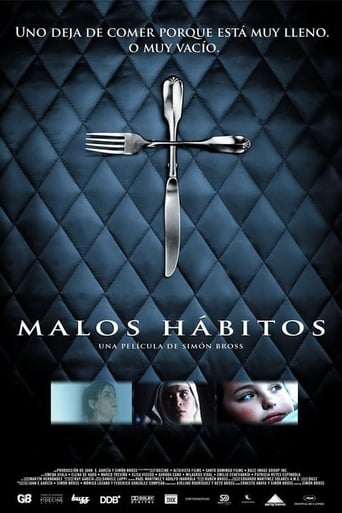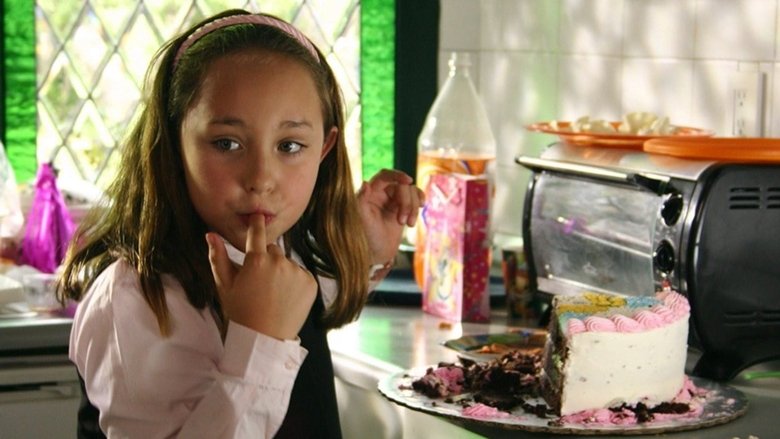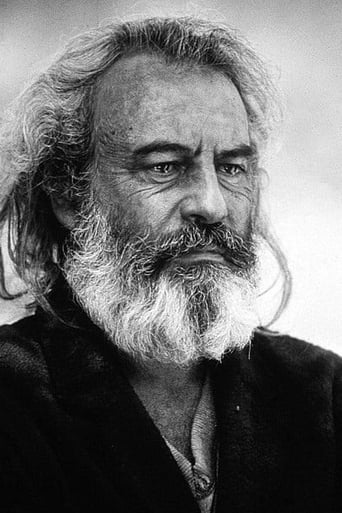

Malos hábitos (2007)
Matilde is a nun convinced that faith moves mountains. She secretly begins a mystic fasting to end what she considers to be the second great flood. Elena is a thin and fashion-conscious woman ashamed of her daughter's chubbiness. She's willing to do the impossible to make her daughter Linda thin so Linda will look like a little princess on the day she receives her first communion. At the same time Elena's husband Gustavo - a professor of architecture - cannot cope with his wife's bones poking him during intimate moments so he turns his attention to a buxom female student with a hearty appetite.
Watch Trailer
Cast
Reviews
Simply A Masterpiece
There are women in the film, but none has anything you could call a personality.
The movie's neither hopeful in contrived ways, nor hopeless in different contrived ways. Somehow it manages to be wonderful
This movie tries so hard to be funny, yet it falls flat every time. Just another example of recycled ideas repackaged with women in an attempt to appeal to a certain audience.
Director Simón Bross probably never won any big awards for Best Direction with this, his first (and so far only) movie, but if there were awards for MOST Direction I'm sure that even now, 8 years after its release (and first time I saw it), "Malos Hábitos" would remain unrivaled amongst Mexican cinema in that field. Due to relatively low budgets and inexperienced crews, Mexican films have a tendency to significantly lack ambition in some way, be it excessively simple screenplays, bad performances, low production values, unremarkable visuals or any combination of those and others. Sure, from time to time (specially in the decade of the 00s) a Cuarón will show up doing impressive long takes that had long been forgotten in our national cinema, or an unwieldy Arriaga screenplay will be masterfully executed by an Iñárritu and together they'll help define hyperlink cinema before there even was a name for it. For the most part however, Mexican directors will usually keep their ambitions too low resulting in unremarkable films. Bross's "Malos Hábitos" doesn't even TRY to keep its ambitions low, resulting in something downright unique. For starters, its screenplay tackles a multitude of themes with an emphasis on three pretty heavy ones: religion, family relations and eating disorders. These themes are tackled in a surprisingly confident way considering their weight (no pun intended) and for the most part the movie actually has something to say about each of them.It's in its direction that "Malos Hábitos" actually stands out, however. Bross seems to be one of the rare Mexican directors that understands the importance of visuals in film to the point of even making conscious decisions about details as small as the placement of water drops on objects. While the cinematography definitely follows what was trendy back then (dark, gritty image at least partially influenced by "Amores Perros") and thus is starting to look dated, its execution is still spot-on. The performances range from serviceable to very good, with a couple of downright great bits of acting and not a single one that can be deemed "bad". The film is defined by taking place almost entirely during a very heavy wet season and the rain just doesn't stop. Either the film's production was entirely dependent on waiting for the right weather for almost every shot or they rented every single rain machine in the country but the result is that, in the movie, rain truly feels like the unrelenting and unstoppable force of nature it can be. The locations and production design are one of those rare cases where they're very noticeable but because of how good they are (interesting architecture playing a particularly important role). The film is bold enough to even include full-on SFX-dependent dream sequences for one of its characters, and they're surprisingly well-executed.On the other hand, edition is definitely this film's weakest aspect, with it being a bit overlong and featuring some downright weird editing choices (the doorknob/teeth-brushing montage being the clearest example). Unfortunately, for all its successes, the film never really becomes more than the sum of its parts. Even if the parts are pretty good on their own, the way that they never really form into an actual whole definitely damages the end result. For "Malos Hábitos", ambition is both what makes it ultimately notable and its greatest flaw, just fortunately not enough to keep it from being an interesting, unique film, worth watching for anyone who's into Mexican cinema and could do with a break from the usual political/comedic stuff.
This excellent film, as mentioned by other review, is not for everyone. If you want to see an easy, happy-ending movie, you are up to a disappointment. The pain the characters portray through out the film grabs you and makes you empathize. It also teaches you that you must learn how to be flexible, to maintain your feet on the ground and stay away from deceit, keeping communication between friends and family a must. I also feel that this movie could happen anywhere in the world, since eating disorders are a problem human kind has been making its own brand from some time now. The motives and background that leads to them is so varied..... but so terribly common.... Finally, the photography and direction is amazing. When you finish watching this movie you certainly don't walk away feeling light-hearted, but you definitely leave knowing you just learned something.
Alejandro Iñårritu seems to have a bit of influence over Mexican cinema the last few years which is a shame since he's only made one great film, Amores Perros. For every brilliant young director like Fernando Eimbcke and his masterful, Temporada de Patos, which gives us a wonderful cinematic experience, and a unique perspective of Mexico, we get a dozen directors following Iñårritu and trying to outdo his "cinema of the unpleasant". It's all here, no color, the use of cold blues and greens, ridiculous use of telephoto lenses which scream art! You know your in trouble when the over stylized cinematography has bullied the thin story out of the way. And what little story is here, focuses on the unpleasantness of the human condition, see Iñårritu's 21 Grams or Babel. Highly recommended if you're a sadist. But if you want a pleasant cinematic perspective of Mexico, rent Temporada de Patos or heck, even Zurdo.
This Mexican drama is based on a true 17th century story of a nurse, I don't know about it, but the case says so, and it was a surprise for me, especially because it was the film debut for Simon Bross.I've seen it today with my wife and it was raining all the week long, so we loved the raining scenes that are part of the entire movie.There are many themes, medics, anorexia, food, psychology, sickness, death, love, childhood, marriage, adultery, sex, familiar, social, school, luxury, religion, faith, beauty, architects... among many others, then I say it is a extremely complex moving picture, where the fusion of those parts make sense and we can spend some different 90 minutes in front of the TV.The actors are very good, and well adapted to the characters physical and psychological terms. The shooting locations aren't bad; too many interior scenes, but the rain ones (even on the windows) compensate it.It isn't the kind of movie for everybody, it's for people who love cinema and "don't bother with a bothering" story, just to extract some lifetime lessons and others experience. As a father it teaches me how to behave if some situations happen to me, and also how to expect and predict the behavior of the others, in particular my daughter.The main theme is the eating-disorders, but this movie it's about the life of a dozen persons, like you and me And those matters could happen to us, so we better put a stop to


